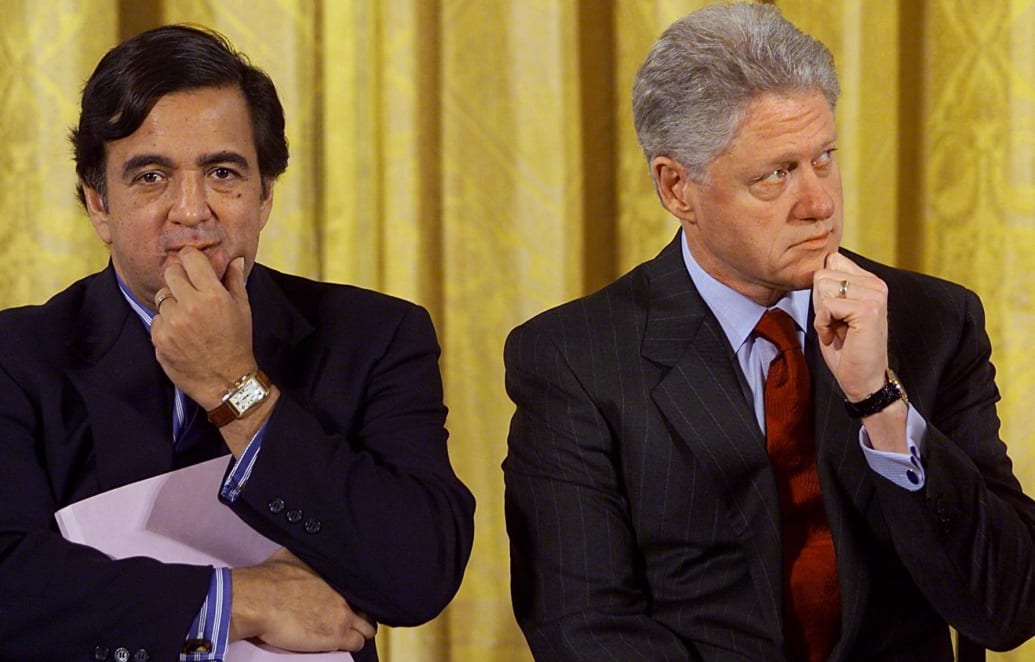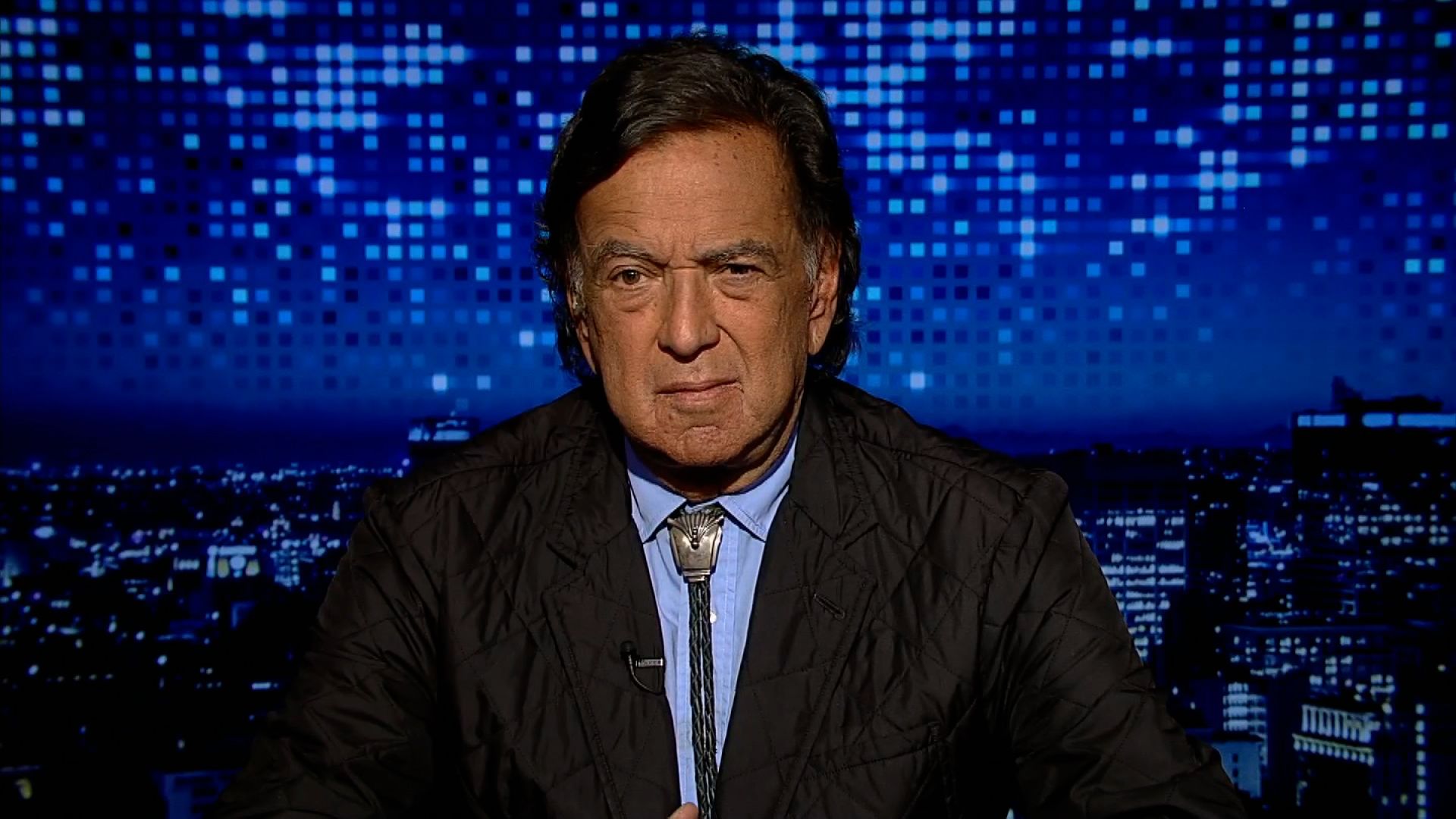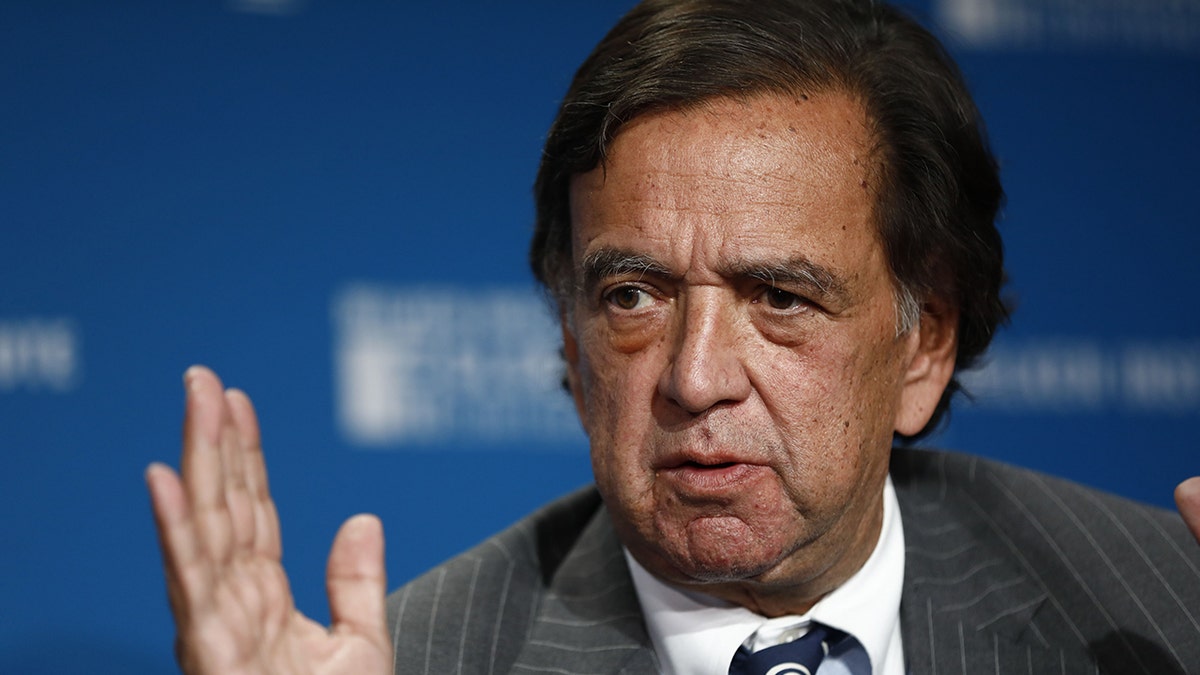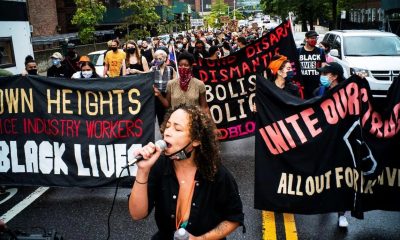Politics
Bill Richardson, A Former Governor And UN Ambassador Who Worked To Free Detained Americans, Dies
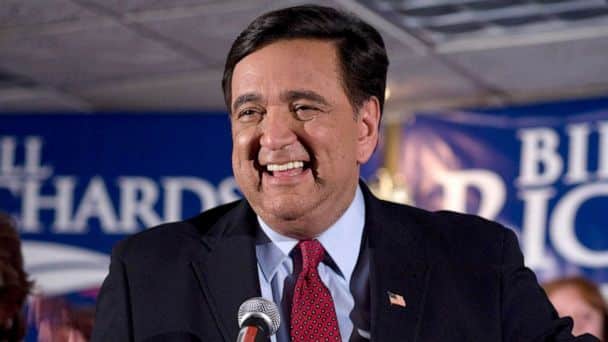
WASHINGTON — The U.S. Bill Richardson, a two-term Democratic governor of New Mexico and an American ambassador to the United Nations who dedicated his post-political career to securing the release of Americans imprisoned by foreign rivals, died on Monday. He was 75.
He died in his sleep at his home in Chatham, Massachusetts, according to the Richardson Centre for Global Engagement, which he founded and directed.
“He lived his entire life in the service of others — including his time in government and his subsequent career helping to free people held hostage or wrongfully detained abroad,” said Mickey Bergman, the center’s vice president. “There was no one with whom Gov. Richardson would not speak if it meant returning a person to freedom.” The world has lost an advocate for those wrongfully imprisoned abroad, and I have lost a mentor and a close friend.”
President Joe Biden praised Bill for seizing every opportunity to serve in government and his efforts to release Americans detained elsewhere. “He’d meet with anyone, fly anywhere, and do whatever was necessary.” The president added, “The multiple Nobel Peace Prize nominations he received are a testament to his ceaseless pursuit of freedom for Americans.” “So is the profound gratitude that countless families feel today for the former governor who helped them reunite with their loved ones.”
Before becoming governor in 2002, Bill served as the United States representative to the United Nations and President Bill Clinton’s energy secretary, and he was a congressman representing northern New Mexico for 14 years.
But he also established himself as an unofficial diplomatic troubleshooter. He traveled the world negotiating the release of hostages and American personnel held prisoner by North Korea, Iraq, Cuba, and Sudan and bartered with a who’s who of America’s opponents, including Iraqi dictator Saddam Hussein. Bill liked the post, once referring to himself as “the informal undersecretary for thugs.”
Bill Richardson, a two-term Democratic governor of New Mexico and an American ambassador to the United Nations, died on Monday. He was 75.
“I believe that we have to engage our adversaries, no matter how different our philosophies are,” Richardson once said. “You deal with issues that divide nations by prioritizing humanitarian efforts over political differences.” That, I believe, is critical.”
He aided in rescuing American journalist Danny Fenster from a Myanmar prison in 2021 and arranged the release of Taylor Dudley, who crossed the border from Poland into Russia this year. He met with Russian government officials in the months leading up to the release of Marine veteran Trevor Reed in a prisoner swap last year, and he also worked on the cases of Brittney Griner, the WNBA star liberated by Moscow last year, and Michael White, a Navy veteran set to be released by Iran in 2020.
The U.S. government’s chief hostage negotiator, Roger Carstens, called Bill “a friend and partner in bringing wrongfully detained Americans and hostages home.” Trump stated on Saturday that he would “miss his wise counsel and friendship.”
Richardson ran for the Democratic presidential nomination in 2008, hoping to become the country’s first Hispanic president. He had a stellar resume and a lot of expertise in foreign and domestic affairs. He withdrew from the race following poor showings in the Iowa caucuses and New Hampshire primary.
During his two years as governor, Richardson was the country’s only Hispanic governor, which he described as “the best job I ever had.”
“It’s the most enjoyable. You can complete most tasks. “You make the decisions,” Richardson added.
As governor, Richardson signed legislation repealing the death penalty in 2009. He called it the “most difficult decision in my political life” because he had previously supported the death penalty. Other achievements include $50,000-a-year minimum pay for New Mexico’s most qualified teachers and a raise in the state minimum wage.
Some of his most visible global efforts began in December 1994, when he was visiting North Korean nuclear sites and learned that an American helicopter pilot had been shot down and his co-pilot had been killed.
Bill Richardson, a two-term Democratic governor of New Mexico and an American ambassador to the United Nations, died on Monday. He was 75.
The Clinton White House solicited Richardson’s assistance, and after days of difficult bargaining, the then-congressman accompanied the remains of Chief Warrant Officer David Hilemon while allowing Chief Warrant Officer Bobby Hall to return home.
Following a personal request from Richardson, Saddam Hussein released two Americans imprisoned for four months on charges of illegally entering Iraq from Kuwait.
Even while serving as governor, Richardson continued his freelancing diplomacy. When he met with two North Korean envoys in Santa Fe, he had barely begun his first term as governor. In 2007, he traveled to North Korea to reclaim the remains of American servicemen slain during the Korean War.
He convinced Sudanese President Omar al-Bashir to release Pulitzer Prize-winning American journalist Paul Salopek in 2006.
Richardson told The Associated Press in August that he was proud of the work he had done to release scores of individuals over the years and his advocacy for the Navajo Nation.
Richardson and former Navajo Nation President Peterson Zah established a fund to provide supplies and equipment to the Navajo Nation to combat the COVID-19 outbreak, giving Navajo students in the state personal protection equipment, food, water, and hundreds of pairs of shoes.
Richardson changed New Mexico’s political environment. He spent and raised record sums on his campaigns, bringing Washington-style politics to a laid-back western state with a part-time Legislature.
Republicans and Democrats alike complained that Richardson threatened retaliation against opponents. Former Roswell Democratic state Sen. Tim Jennings alleged Richardson was “beating people over the head” in his contacts with lobbyists on a health care issue. Richardson disregarded criticism of his management approach.
“I admit that I am aggressive. “I use the governorship as a bully pulpit,” Richardson remarked. “However, I make no threats of retaliation.” They claim I’m a vengeful person. I simply do not believe it.”
Longtime friends and supporters attributed Richardson’s success to his tenacity. If Richardson wanted something done, expect him to have a shotgun at the end of the corridor, according to Bob Gallagher, president of the New Mexico Oil and Gas Association. Alternatively, a ramrod.”
Bill Richardson, a two-term Democratic governor of New Mexico and an American ambassador to the United Nations, died on Monday. He was 75.
New Mexico Gov. Michelle Lujan Grisham, a Democrat, characterized Richardson as a visionary who understood New Mexico’s potential before others. “Today, New Mexico, our country, and the entire world lost a champion.” Bill Richardson was a true hero among us, battling for the underdog, world peace, and all in between.”
Despite his closeness with the Clintons, Richardson endorsed Obama over Hillary Clinton after dropping out of the 2008 presidential race.
Later, Obama nominated Richardson to be Commerce Secretary. Richardson resigned in early 2009 due to a federal investigation into an alleged pay-to-play scam in New Mexico involving his administration. Richardson and his former senior aides were not charged due to the probe.
Richardson’s stint as energy secretary was marred by a controversy involving lost computer equipment containing nuclear weapons secrets at Los Alamos National Laboratory and the government’s investigation and prosecution of former nuclear weapons scientist Wen Ho Lee.
In 1999, Richardson authorized Lee’s dismissal at Los Alamos. Lee was held in solitary confinement for nine months after being charged 59 charges of mishandling confidential information. He later pleaded guilty to one count of mishandling computer files and was discharged with a federal judge’s apologies.
Bill Richardson, a two-term Democratic governor of New Mexico and an American ambassador to the United Nations, died on Monday. He was 75.
William Blaine Richardson was born in Pasadena, California, but grew up in Mexico City, the son of a Mexican mother and an American father who worked as a bank executive in the United States.
He was a star baseball player in prep school in Massachusetts. He attended Tufts University and graduated from their Graduate School of International Relations with a master’s in international affairs.
After working as a Capitol Hill staffer, Richardson relocated to New Mexico in 1978. He intended to run for political office and thought New Mexico, with its Hispanic origins, would be an excellent place to do so. Only two years later, he ran unsuccessfully for Congress.
He was elected to a new congressional seat from northern New Mexico in 1982, which the state gained through reapportionment. He resigned from Congress in 1997 to become a U.N. ambassador in the Clinton administration, and he became Secretary of Energy in 1998, a position he held until the conclusion of the Clinton presidency.
SOURCE – (AP)
Politics
Canada’s Population Explosion Under Trudeau Triggers Housing Shortage
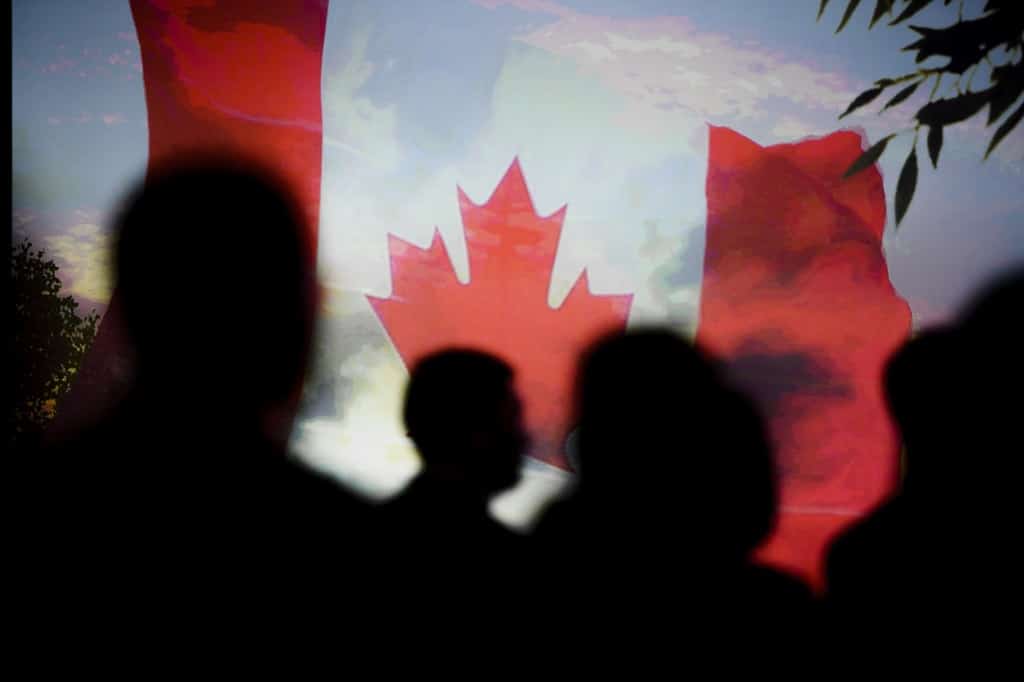
The Trudeau government declared on March 21, 2024, that it would accept fewer temporary residents due to the difficulty of assimilating so many newcomers so quickly. However, population growth appears to be accelerating in 2024.
Statistics Canada’s Labour Force Survey, the population aged 15 and over increased by approximately 411,000 in the first four months of the year, representing a than 50% increase over the four-month growth in early 2023.
This new acceleration was the focus of a recent research paper by Stéfane Marion, chief economist at the National Bank of Canada. “The demographic shock is getting worse in Canada,” he told Canada’s Globe and Mail.
Canada is seeing its strongest population expansion in decades, thanks almost exclusively to foreign migration, which includes the entrance of temporary workers and students. The population increased by about 1.3 million last year, or 3.2%, the fastest rate since the late 1950s.
Every month, tens of thousands of households participate in Statistics Canada’s labour survey. While the government includes population data in its monthly jobs report, they are not official estimates. Statscan publishes a different population report on a quarterly basis; the next edition is due June 19.
Nonetheless, these data indicate that Canada’s economy has remained strong to begin the year, which could complicate the federal government’s efforts to limit migration.
For the first time, the Trudeau government will impose limits on temporary residents beginning this fall. The government aims to reduce this group to 5% of the total population during the next three years; at latest count, they accounted for 6.5%.
Given those plans, “it would seem that many people have decided to come to Canada earlier,” Mr. Marion said, stressing that housing affordability may worsen in the short term.
Several analysts have predicted that Canada’s population growth will eventually decrease to approximately 1% when these new laws take effect.
Housing Affordability in Canada
Meanwhile, Stéfane Marion fears that housing affordability difficulties will increase amid another surge in immigration numbers.
“Demographic shock is worsening in Canada. The working-age population (aged 15 and over) increased by more than 100,000 in April, bringing the total to more than 410,000 after four months in 2024.
According to today’s Hot Chart, this is a significant acceleration (+47%) above the 278,000 increase seen in the first four months of 2023. Greater Toronto, where population growth hit a record 107,000 at the start of the year, has accelerated by 66% compared to 2023.
Greater Montreal and Greater Vancouver have not lagged behind since the beginning of 2024, with growth more than doubling that recorded in 2023.
With Canada’s Minister of Immigration, Refugees, and Citizenship, Marc Miller, announcing plans to curb immigration in 2025, it appears that many people have decided to come to Canada sooner.
Housing affordability issues could increase in the coming quarters, as we approach another record year of population growth.
RBC indicates a loss of affordability in Canada
RBC’s aggregate affordability score for Canada increased by 2.8 percentage points to 62.5% as mortgage rates rose and property prices rose somewhat. (An increase in the measure indicates a loss of affordability.) This reversed a little improvement in the second quarter.
The issue is particularly acute in Vancouver, Victoria, and Toronto, where property ownership is extremely expensive. Ottawa, Montreal, and Halifax also confront difficult affordability issues.
Last quarter, purchasers’ already bad situation deteriorated even further. A typical household required to set aside an additional 4.4 percentage points of its income to afford the costs of owning an average home at current prices and interest rates.
In fact, the entire income of that (median) household was insufficient, with RBC’s aggregate affordability metric coming in at an amazing 102.6%. The only practical choice for most ordinary consumers remains a less expensive condo apartment, which is still out of reach for many.
Home purchase activity has cooled again after unexpectedly rebounding last spring. Furthermore, prices are beginning to fall from their summer highs. In the face of significant affordability pressures, we believe the downward trend may accelerate in the near term.
Keywords: Canada News, Canada Population
Politics
Trudeau Liberals Electoral Chances are as Good as Dead
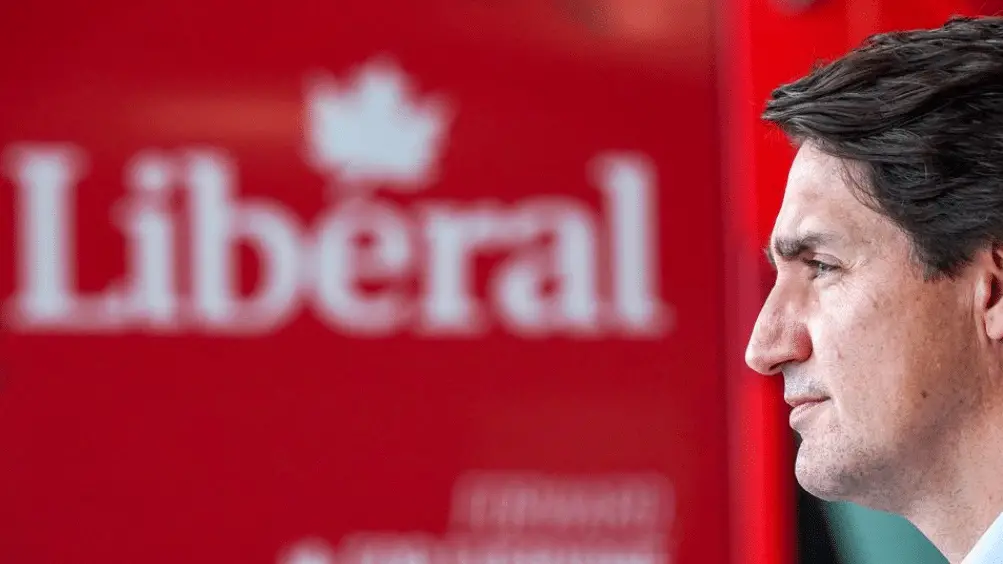
Justin Trudeau’s Liberal Party’s popularity has plummeted to record lows in recent polls. Scandals and his carbon tax weakened Trudeau’s support after years of support. Many election Analysts belive Justin Trudeau and his Liberals will not survive the next election.
The newest Angus Reid survey shows the Conservatives leading nationwide, with Trudeau and his Liberals losing support in most provinces, especially Ontario and Quebec. Analysts say Trudeau’s leadership fatigue, unhappiness over inflation, ridiculous carbon tax, and continual policy flip-flopping are driving voters away.
Trudeau’s carbon tax is unpopular across Canada. Many Canadians hate its higher prices for homes and businesses.
Critics say it unfairly targets energy, threatening jobs and prosperity. Skeptics believe the tax fails to solve global climate challenges despite claims it will reduce emissions.
Provincial governments like Alberta passionately oppose federal intrusion. The carbon tax still divides society.
Steven Guilbeault, Trudeau’s Environment and Climate Change Minister, has lost support from neutral public and provincial governments and the powerful climate action lobby.
Don Braid of the Calgary Herald says Chickens with their heads cut off run around in circles. In politics, the federal Liberals are starting to exhibit this postmortem behaviour.
Environment and Climate Change Minister Steven Guilbeault, the core cabinet fowl who said no new roads should be built in Canada, continues to press his climate extremism.
“The result is political fiasco.”
Alberta and Saskatchewan have always been bitterly opposed to many measures. But Guilbeault is now losing support from the public, provincial governments that once were at least neutral and, crucially, the powerful climate action lobby.
The disasters are self-inflicted. Trudeau and Guilbeault stuck to the carbon tax even after the policy’s disastrous deflation by the “carve out” for home heating oil, a benefit mainly to Atlantic Canada.
Their faux-tough response — nobody else gets that, dammit! — actually cost farmers a break that had been planned, but suddenly looked like another exemption.
The carbon tax, revealed as a purely political tool, is ripe for axing by a potential new leader like Mark Carney. Even New Democrats have argued that the tax should exit, stage left.
Now, Guilbeault has introduced amendments to the Impact Assessment Act, allegedly bringing it into line with the Supreme Court ruling that found the law seriously intrudes on powers rightly belonging to the provinces.
Trudeau’s power grabs shot down
Guilbeault has never acknowledged this was a defeat. He treats the ruling as a simple policy problem rather than a 5-2 thumping by judges not usually known for hostility to federal power grabs.
Alberta was predictably furious about the amendments. Premier Danielle Smith always said Guilbeault would make a gesture and proceed as usual, forcing yet another court challenge.
“When you look at the unconstitutionality of the first draft, you can’t just make tweaks and bring this in line with the Constitution,” says Rebecca Schulz, Alberta’s minister for environment and protected areas.
“That’s really the issue here. Minister Guilbeault still has the ability to involve himself in projects that are within provincial jurisdiction.
“In the end, this piece of legislation remains unconstitutional. We are going to be taking this back to court and I’m confident in our position, because their changes don’t actually address the issues that we’ve raised.”
Trudeau’s middle ground game not working
The Impact Assessment Agency, the powerful regulatory body that oversees all this, said in a statement: “No decisions to designate projects will be taken. Consideration of any new designation requests will only resume, as appropriate, once amended legislation is in force.”
Most striking is the fury from the climate action lobby toward Guilbeault’s amendments.
“Overall, the bill is a complete federal abdication to address proposed high-carbon projects such as in situ oil mines,” Steven Hazell, a retired environment lawyer and federal regulator told the National Observer, Canada’s best chronicler of climate stories and policy.
Green party Leader Elizabeth May said the government was “erring on the side of stupidity.” May sees the court decision as an opportunity to go further with legislation, not retreat to meet demands of provincial jurisdiction.
World
China And Russia Reaffirm Their Close Ties As Moscow Presses Its Offensive In Ukraine
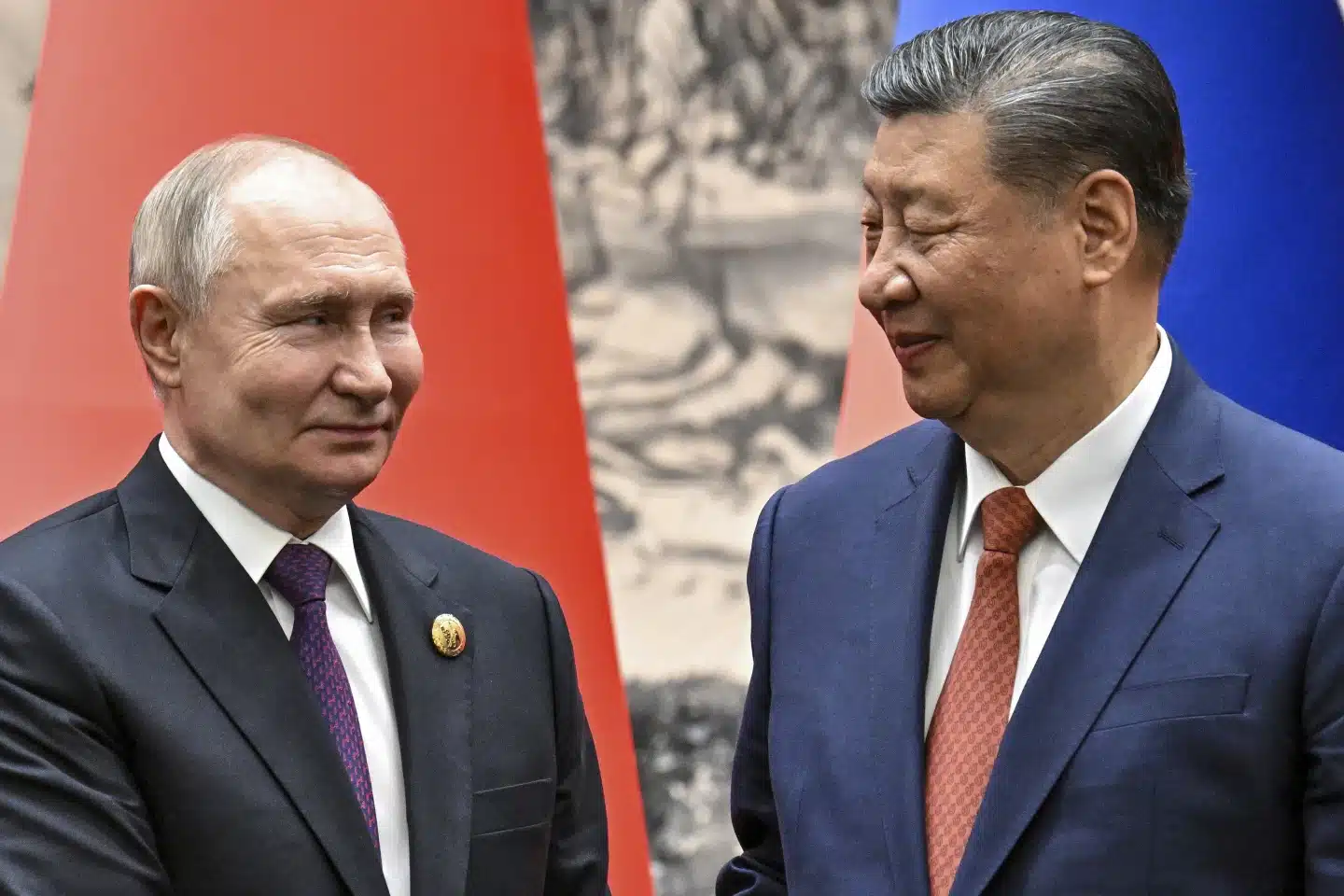
BEIJING — On Thursday, Russian President Vladimir Putin and Chinese President Xi Jinping reiterated their “no-limits” friendship, which has expanded as both countries face mounting tensions with the West, and blasted US military deployments in Asia and the Pacific.
At their summit in Beijing, Putin hailed Xi for China’s recommendations to settle the conflict in Ukraine, which Ukraine and its Western allies have rejected as mostly adopting the Kremlin’s line.
Putin’s two-day state visit to one of his biggest allies and commercial partners comes as Russian forces launch an operation in northeastern Ukraine’s Kharkiv region, marking the most serious border incursion since the full-scale invasion began on February 24, 2022.
China claims to be impartial in the crisis, but it has supported the Kremlin’s accusations that the West led Russia into attacking Ukraine, and it continues to supply vital components required by Moscow for weapons manufacture.
AP – VOR News Image
China And Russia Reaffirm Their Close Ties As Moscow Presses Its Offensive In Ukraine
China, which has not condemned the invasion, suggested a broad-based peace plan in 2023, calling for a cease-fire and direct talks between Moscow and Kyiv. Both Ukraine and the West rejected the idea because it did not call on Russia to vacate Ukraine’s occupied territories.
China also lent a verbal nod to Russia’s narrative about Nazism in Ukraine, with a joint statement issued Thursday saying Moscow and Beijing should protect the post-World War II order and “severely condemn the glorification of or even attempts to revive Nazism and militarism.”
Putin has claimed the “denazification” of Ukraine as a primary purpose of the military action, falsely referring to Ukrainian President Volodymyr Zelenskyy’s government as neo-Nazis.
The mostly symbolic and ceremonial visit emphasized cooperation between two countries facing challenges in their relations with the United States and Europe.
“Both sides want to show that despite what is happening globally, despite the pressure that both sides are facing from the U.S., both sides are not about to turn their backs on each other anytime soon,” said Hoo Tiang Boon, a Chinese foreign policy researcher at Singapore’s Nanyang Technological University.
While Putin and Xi stated they wanted to stop the war, they made no new ideas in their public remarks.
“China hopes for the early return of Europe to peace and stability and will continue to play a constructive role toward this,” Xi said in prepared remarks to the media in Beijing’s Great Hall of the People. His statements echoed China’s overarching peace initiative.
Earlier in the day, Putin was greeted in Tiananmen Square with military fanfare and cannon fire.
On the eve of his visit, Putin stated that China’s proposal may “lay the groundwork for a political and diplomatic process that would take Russia’s security concerns into account and contribute to achieving long-term and sustainable peace.”
Zelenskyy has stated that any negotiations must entail the restoration of Ukraine’s territorial integrity, the departure of Russian soldiers, the release of all captives, a tribunal for those responsible for the assault, and security assurances for Ukraine.
AP – VOR news Image
China And Russia Reaffirm Their Close Ties As Moscow Presses Its Offensive In Ukraine
Putin said he would brief Xi on the situation in Ukraine, adding, “We appreciate the initiative of our Chinese colleagues and friends to regulate the situation.”
Following Russia’s latest attack in Ukraine last week, the war has reached a crucial point as Ukraine’s depleted military awaits new supplies of anti-aircraft missiles and artillery rounds from the United States, which have been delayed for months.
China and Russia’s joint statement also harshly slammed US foreign policy, citing US-formed alliances as having a “Cold War mentality.”
“Both sides expressed serious concern about the consequences caused to the strategic stability of the Asia-Pacific region by AUKUS,” according to the statement, referring to the acronym for Australia, the United Kingdom, and the United States.
China and Russia have accused the United States of installing land-based intermediate-range missile systems in the Asia-Pacific region under the guise of joint drills with allies. They claimed that the United States’ operations in Asia were “changing the balance of power” and “endangering the security of all countries in the region.”
The united declaration underscored China’s support for Russia.
“There’s so much Chinese falling over themselves to give Russia face and respect without saying anything specific, or committing to anything,” said Susan Thornton, a former diplomat and senior fellow at Yale Law School’s Paul Tsai China Center.
The meeting was another endorsement of China and Russia’s amicable “no limits” friendship, which they signed in 2022, just before Moscow invaded Ukraine.
Since then, Russia has been increasingly economically dependent on China since Western sanctions have limited its access to most of the global commercial system. China’s expanding commerce with Russia, which reached $240 billion last year, has helped the country buffer some of the worst effects of sanctions.
Moscow has transferred most of its energy exports to China and relied on Chinese enterprises to purchase high-tech components for Russian defense sectors to avoid Western sanctions.
AP – VOR News Image
China And Russia Reaffirm Their Close Ties As Moscow Presses Its Offensive In Ukraine
“I and President Putin agree we should actively look for convergence points of the interests of both countries, to develop each’s advantages, and deepen integration of interests, realizing each others’ achievements,” added Xi.
Xi congratulated Putin on the start of his fifth term in office and commemorated the 75th anniversary of diplomatic relations between the former Soviet Union and the People’s Republic of China, which were formed after a civil war in 1949. In the March election, Putin eliminated all significant political opponents and faced no serious threat. He, like Xi, has not spelled out a succession strategy.
“In a famous song of that time, 75 years ago — it is still performed today — there is a phrase that has become a catchphrase: ‘Russians and Chinese are brothers forever,'” Putin stated.
During the war, Russia and China expanded their military ties. In recent years, they have conducted several cooperative war simulations, including naval drills and long-range bomber patrols over the Sea of Japan and the East China Sea. Russian and Chinese ground forces have also moved to the other country’s territory to conduct joint training.
China continues to be a major market for Russian military hardware, while the country’s defense industry is rapidly developing, including the production of aircraft carriers and nuclear submarines.
Putin has already stated that Russia has shared highly sensitive military technologies with China, considerably improving its defense strength.
SOURCE -(AP)
-
Sports5 months ago
Saints’ Aggressive Play-Calling Ends Up Coming Back To Hurt Them In Loss To Rams
-
Business5 months ago
Nike Says It Will Cut $2 Billion In Costs In A Major Warning For Consumers
-
Business5 months ago
Federal Court Revives Lawsuit Against Nirvana Over 1991 ‘Nevermind’ Naked Baby Album Cover
-
News5 months ago
The Rise of Woke Ideology in Western Culture
-
Business5 months ago
Wayfair CEO: Employees Need To Work Longer Hours, After Laying Off 5% Off The Company
-
Learning4 days ago
Exploring TVA Nouvelles Quebec’s Premier News Source

